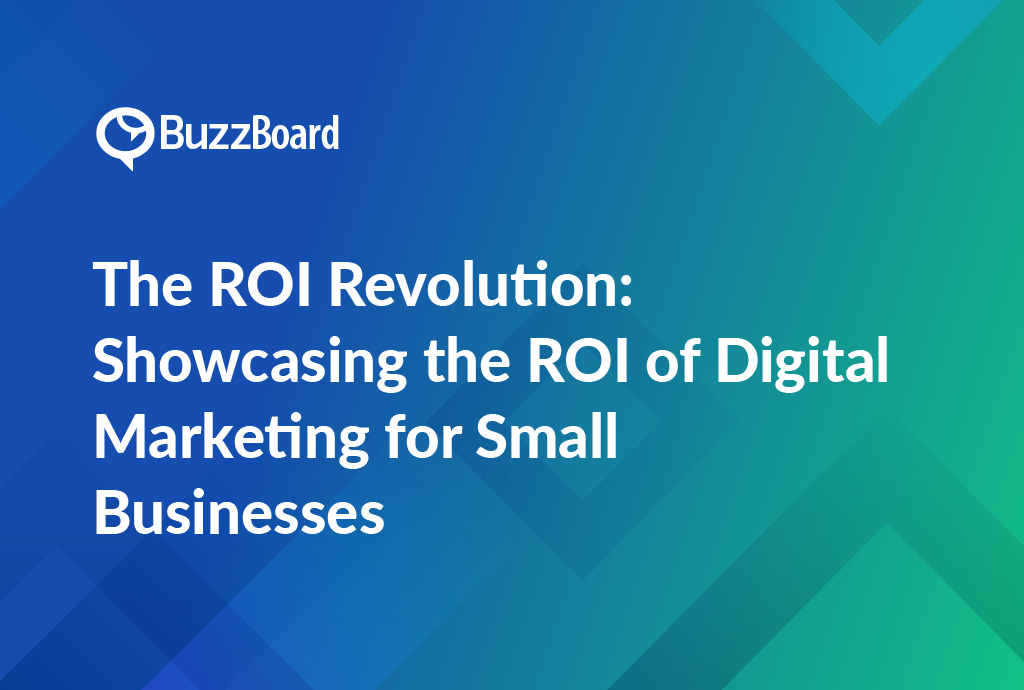Introducing the ROI Revolution in Digital Marketing for Small Businesses
In recent years, digital marketing has emerged as a critical component in the business strategy of small businesses. This trend points to a revolution pivoting on a vital metric: ROI—return on investment. To delve deeper, let’s examine digital marketing ROI for small businesses.
Case studies show that an effective digital marketing strategy can deliver noteworthy ROI for small businesses. By leveraging online channels, such as email, social media, and SEO, small businesses can connect with and engage their target audience, possibly leading to increased sales conversions.
Client testimonials provide further solid evidence of digital marketing ROI efficiency. These testimonials not only reflect satisfaction but also substantial growth and profit for companies that have adopted the digital marketing revolution.
Data-driven results form the foundation of the ROI revolution in digital marketing. Comprehensive analyses of customer behavior, preferences, and tendencies yield measurable outcomes. By utilizing metrics, such as page views, bounce rates, and conversion rates, businesses can continually refine their strategies for optimal ROI.
Marketing attribution models have simplified transparency in marketing strategy and execution. These models assist businesses in identifying which strategies generate the most returns. This visibility is vital, enabling businesses to make informed decisions that align directly with consumer needs and preferences.
In conclusion, the ROI revolution in digital marketing is ushering in new opportunities for small businesses. It bears witness that intelligent strategies supported by valuable data can produce exceptionally impressive returns.
Using Data-Driven Results to Demonstrate the Potential ROI of Digital Marketing for Small Businesses
Digital marketing is a compelling tool that helps small businesses establish a robust online presence. The effectiveness of these campaigns manifests in data-driven results, serving as a testament to the potential return on investment (ROI) digital marketing can provide.
This potential is demonstrated in case studies that spotlight the triumphant tales of small businesses that enhanced their sales through digital marketing strategies. Marketing attribution models, such as the Last Interaction or Position-Based model, are instrumental in determining the role of various marketing channels in increasing a business’s conversion rate. Yet, the selection of these models should be carefully considered, reflecting the specific needs of the small businesses involved.
Client testimonials provide tangible evidence of the power of data-driven digital marketing strategies in boosting the ROI of small ventures. Respected industry figures have acknowledged noticeable enhancements in sales after implementing such strategies.
These endorsements reinforce how marrying data-driven results with digital marketing strategies can fortify small businesses, widening their market reach at a minimal expense.
Understanding the Role of Marketing Attribution Models in Calculating Digital Marketing ROI for Small Businesses
Managing digital marketing ROI (Return on Investment) for small businesses can present a significant challenge. It demands a deep understanding of marketing attribution models, a key tool in calculating this critical metric.
Marketing attribution models facilitate the assignment of credit to various channels and touchpoints within your customer’s journey. These models ensure results driven by data, helping you to allocate your budget effectively by focusing on the most productive marketing channels.
Notably, there exists a broad range of marketing attribution models—each with its own set of advantages and disadvantages. For instance, single-touch models are easy to implement but may oversimplify the customer journey. Conversely, multi-touch models offer a comprehensive view but may be complicated to configure and interpret.
Recognizing and selecting the appropriate model for your business can substantially boost your marketing ROI. This can be even more potent when supplemented with case studies and client testimonials, offering concrete evidence of successful execution and results.
To sum up, mastering marketing attribution models can provide considerable leverage in enhancing ROI. It paves the way for data-driven decisions catering better to your clients’ needs.









